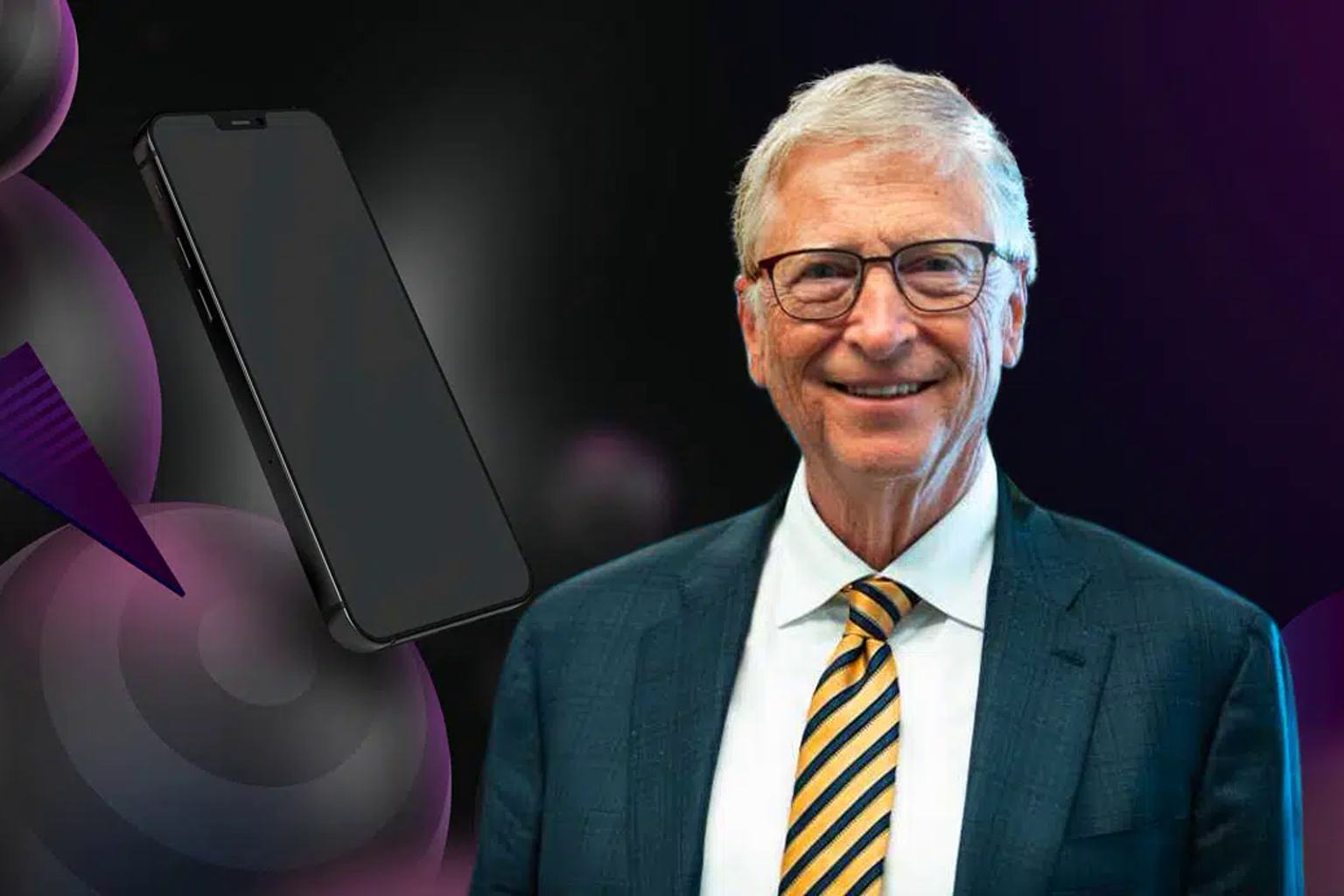© Bill Gates predicts the end of smartphones, the surprising technology set to replace your phone
What if the smartphone in your pocket was obsolete tomorrow ? Bill Gates believes the age of handheld devices is coming to an end. Instead, he envisions a future where electronic tattoos are embedded in your skin, seamlessly connecting you to the digital world.
These tattoos wouldn’t just replace phones—they could allow you to communicate, access the internet, and monitor your health without a single screen. Imagine interacting with the world with a simple gesture on your own arm.
The decline of the smartphoneEarth’s oxygen is running out – NASA scientists warn of a future without breathable airGoodbye toilet paper: the new bathroom option that’s already a global trend
Smartphones have been essential for more than a decade. From checking emails to scrolling social media, these devices have shaped how we live and work. But Gates predicts this era is fading. He points to electronic tattoos, developed by Chaotic Moon and later acquired by Accenture, as the next major technological leap.
Instead of holding a device, these tattoos are integrated into the body. Powered by tiny nanocapacitors, they don’t require batteries or bulky screens. Simple gestures could unlock doors, send messages, or browse the web, offering a more intuitive, elegant experience than anything we’ve seen so far.
How electronic tattoos work
So what are electronic tattoos exactly ? Picture temporary, skin-based apps using smart ink embedded with nanocapacitors. These tattoos communicate with nearby devices, letting you perform tasks with a swipe or tap.
Beyond communication, they can monitor vital signs like heart rate, body temperature, and detect potential health issues early. Essentially, they combine a health monitor with a communication device in one invisible package. I remember testing my first wearable fitness tracker and realizing how much I relied on constant data—it’s easy to imagine how seamlessly integrated tattoos could redefine our relationship with personal health.
Privacy, security, and ethical challengesSay goodbye to the Pyramid of Giza—thousands of tourists are disappointed by the reality behind this Wonder of the World7 traits of people who sleep with their pets according to psychologists
As exciting as this sounds, electronic tattoos raise serious questions. They collect sensitive biometric and personal data, from location to health metrics. Who owns this data, and how is it protected ? Cybersecurity could reach a whole new level, as hackers may attempt to exploit these deeply embedded devices.
Yet, the benefits are striking. Tattoos could replace passwords, credit cards, and even physical keys. Thanks to their unique biometrics, they could offer more robust security than today’s smartphones. The challenge will be ensuring these innovations are safe, ethical, and accessible to everyone.
A new era of wellness and social interaction
The potential impact on health is profound. Continuous monitoring of sleep patterns, heart rate, and other indicators could catch problems before they become serious. In a world where wearable tech is rapidly evolving, tattoos could provide more accurate real-time health data than any smartwatch.
Social interactions could also change. With less reliance on screens, we might focus better on conversations and experience less distraction. But accessibility remains a concern—if only certain groups can afford these tattoos, the digital divide could widen further.
I can’t help but think about how technology has already subtly changed my life. My first experience with contactless payment felt effortless, almost magical. Now imagine that convenience, invisibly integrated into your body, simplifying not just payments but every aspect of daily life.
Electronic tattoos may sound like science fiction, but with backing from Bill Gates and other innovators, they could become reality sooner than we think. How would you feel about replacing your phone with a device on your skin ? Share your thoughts, questions, or excitement in the comments and join the conversation about the future of technology.

